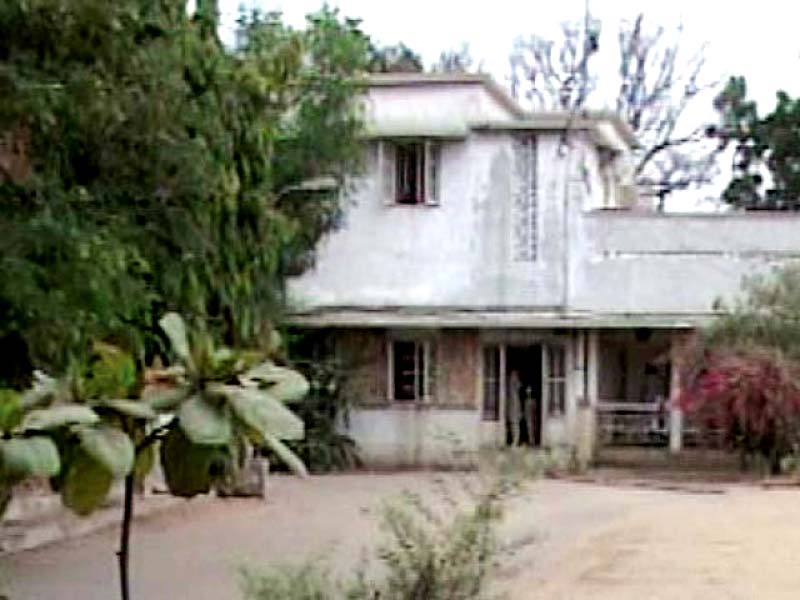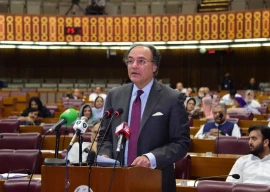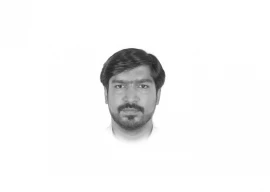
The five newly-established anti-terrorism courts in the city have yet to become functional as the provincial government has failed to provide manpower despite the reiterating promises, it emerged on Thursday.
The number of special anti-terrorism courts was increased to 10 after the government set up another five, following the Supreme Court's (SC) directives to curtail the escalating lawlessness in the city through expeditious trials of criminals.
Sources told The Express Tribune that the newly set-up ATCs have yet to start functioning as one court awaits the appointment of the presiding officer, while the other four could not start functioning due to the non-availability of the judicial staff.
The judicial officers, however, have been withdrawing salaries since their appointment. It also emerged that no prosecutors have so far been appointed in the new courts. Only after the staff is appointed can the administrative judge of the ATCs, Basheer Ahmed Khoso, transfer the cases to the newly-established courts.
In February, the Sindh High Court had appointed two retired and a sitting district and sessions judge as presiding officers of three new ATCs following the provincial government's request to enhance the number of courts.
The Sindh government had requested the then SHC Chief Justice Mushir Alam to appoint judges for the five ATCs on Sept 6, 2013. The appointment was later linked to the availability of accommodation and logistics by the SHC. On Sept 13, the SHC had directed the provincial government to allocate accommodation and infrastructural facilities for the five new ATCs. The new ATCs were subsequently established in the barracks of the Pakistan Secretariat, where the existing ATCs were also relocated.
"The prime purpose of increasing the number of courts was to ensure speedy trials of the cases of terrorism, kidnapping for ransom and extortion," explained a judicial officer.
In March last year, the government had also delegated special powers to the 15 sessions' judges to hear and decide cases falling under the ambit of the Anti-Terrorism Act (ATA), 1997.
The idea of effective prosecution, however, may remain a distant dream as the provincial government has failed to honour the pledges it had made months ago.
Unfulfilled promises
A judicial official, on the condition of anonymity, claimed that the government's attitude towards the judiciary had always been indifferent. "The government has not even bothered to appoint staff to the already functioning five ATCs, which were established several years ago," he claimed. "The void has been filled by government officials from different departments who were deputed at the ATCs."
Under the provisions of the ATA, 1997, the ATC is required to decide a case within seven days after taking cognisance of the case.
The official statistics, however, suggest otherwise. Various cases have been pending before the ATCs for a long time as the judges are preoccupied with the burden of the cases. The trial of 310 cases is pending in ATC-I, 425 in ATC-II, 350 in ATC-III, 70 in ATC-IV and 80in ATC-V, leaving the courts with no option but hear over 10 cases daily.
The legal fraternity believes that the dream of establishing peace in the city will never be realised until the subordinate judiciary is equipped with the workforce and resources to effectively punish the criminals.
The government responds
According to Dr Sikandar Mandhro, the minister for parliamentary affairs who also deals with the provincial law department, the appointment of the judicial staff and provisions are in process. He said that the government was going to award tenders for the infrastructure and will advertise positions for judicial staff which will be hired on merit. He added that this should be completed in a month's time.
Published in The Express Tribune, May 24th, 2014.


1725543901-0/Tribune-Pic-(5)1725543901-0-165x106.webp)










1725434334-0/Untitled-design-(35)1725434334-0-270x192.webp)









COMMENTS
Comments are moderated and generally will be posted if they are on-topic and not abusive.
For more information, please see our Comments FAQ